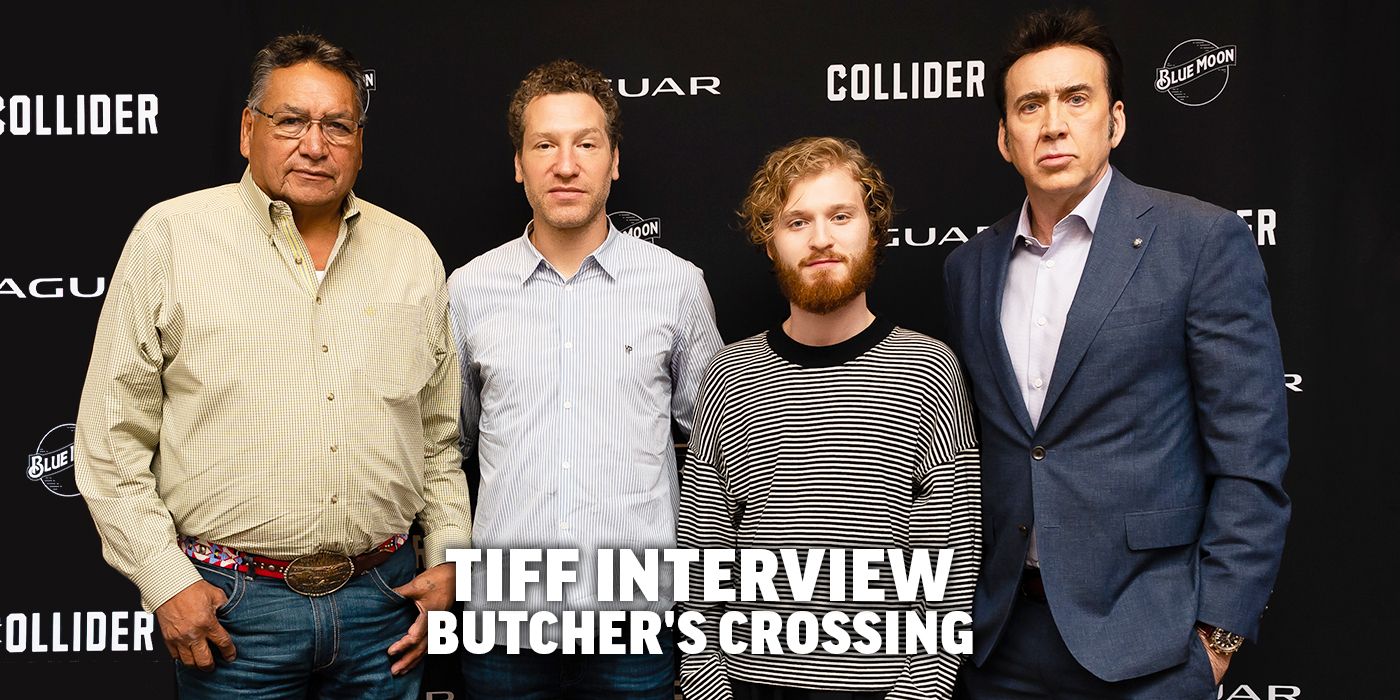🎬 Butcher’s Crossing (2025)

“A new frontier awaits — witness his return.”

In the heart of America’s untamed wilderness, where ambition meets the bone-deep silence of snow and wind, Butcher’s Crossing (2025) carves a new definition of the Western genre. Nicolas Cage delivers one of his most introspective and commanding performances — not merely as a hunter of buffalo, but as a man consumed by the feral hunger to conquer nature, and in doing so, himself.
The film opens with the promise of freedom, adventure, and profit. But as the expedition ascends into the Rocky Mountains, that promise turns into a test of endurance and sanity. Every gust of icy wind feels like a whisper of nature’s warning — that no man, no matter how determined, can tame a world that does not want to be tamed.

Director Gabe Polsky paints the frontier not as a land of glory, but of reckoning. Each frame bleeds isolation, each mountain peak looms like a moral question. The vast, snow-swept landscapes are breathtaking, yet suffocating — mirrors of the human mind when stripped bare of civilization.
Cage’s character stands at the center of it all: proud, fierce, and unraveling. His eyes, weary yet defiant, hold the fire of obsession — an obsession that drives the men around him to ruin. The buffalo hunt becomes more than survival; it becomes a ritual of destruction, a dance between greed and guilt.
The supporting cast deepens this descent into madness. Their camaraderie, once warm and full of hope, fractures under the weight of cold nights and empty horizons. Each man’s silence speaks louder than any dialogue, and every small gesture — a trembling hand, a long stare into the distance — feels like the last thread holding them to humanity.

The score hums like the pulse of the land — low, mournful, and hypnotic. It doesn’t simply accompany the visuals; it breathes with them. The audience can almost feel the crunch of snow under boots, the sting of frost on skin, the echo of rifle shots fading into eternity.
Polsky’s direction refuses romanticism. There are no heroes here, only survivors — and even survival feels like defeat. Nature, in its indifferent grandeur, is the true protagonist. It watches as men destroy themselves in the name of conquest, then swallows them whole without remorse.
By its final act, Butcher’s Crossing transforms from a survival epic into a spiritual reckoning. The wilderness strips away every illusion, leaving behind only the raw core of what it means to be human. It asks not how far one can go to claim the land — but how far the land will go to reclaim the soul.

Visually stunning, emotionally exhausting, and thematically profound, Butcher’s Crossing stands as a requiem for the myth of the frontier. It reminds us that the real wilderness is not out there in the snow and rock, but within us — where the line between man and beast is perilously thin.
Related movies:











